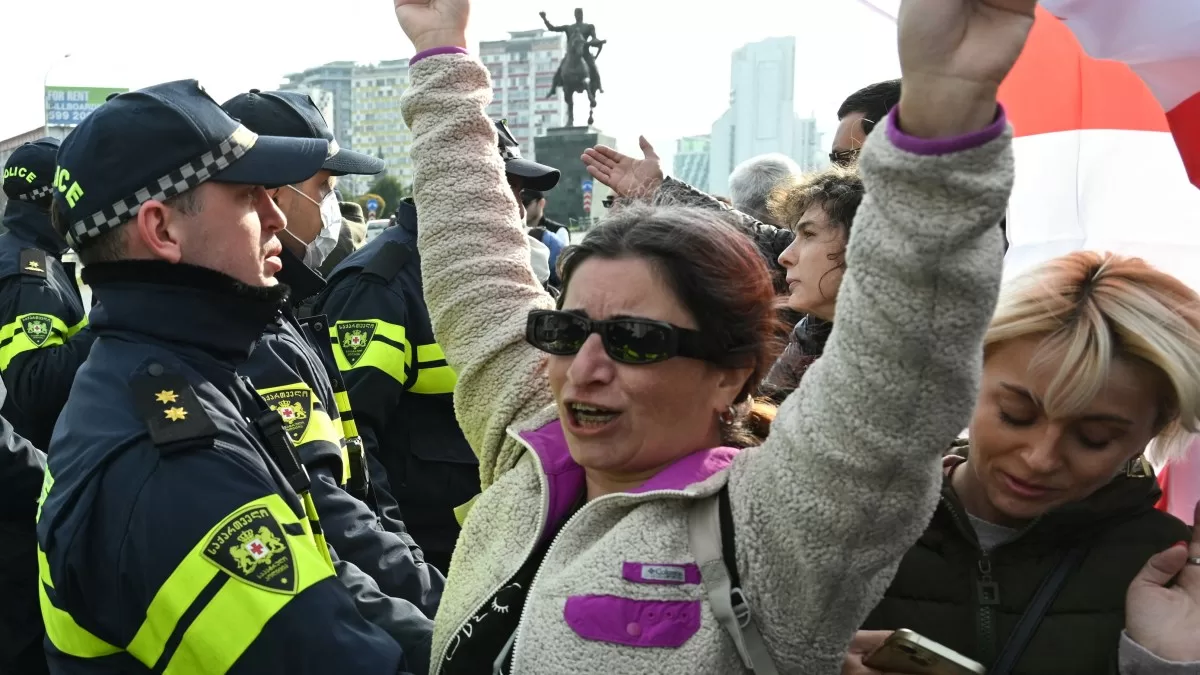Head of Central Electoral Commission is doused with black paint during unruly session as protesters gathered outside.
Thousands of people are protesting in Georgia after the election commission confirmed the governing party as the winner of last month’s disputed parliamentary polls.
The Caucasus nation’s Central Electoral Commission (CEC) said on Saturday that the Russia-friendly Georgian Dream party won 53.93 percent of the vote, against 37.79 percent garnered by an alliance of pro-Western opposition groups.
The final results give Georgian Dream 89 seats in the 150-member parliament, which the opposition has refused to enter based on allegations of tampered results.
During a confrontational session of the election commission, opposition representative Davit Kirtadze splashed black paint on the CEC chief, Giorgi Kalandarishvili.
He shouted that the commission head has been moving Georgia towards Russia instead of the European Union. The Ministry of Internal Affairs said it has initiated a criminal investigation against Kirtadze.
The ministry also said police detained three antigovernment demonstrators at a protest outside the commission’s headquarters.
There have been a string of protests drawing tens of thousands following the October 26 parliamentary vote.
There were mass student protests at universities on Friday evening in big cities across Georgia, including at Tbilisi State University, which lasted until after midnight.
Prime Minister Irakli Kobakhidze and the president have also been clashing, with President Salome Zourabishvili describing the vote as illegitimate and accusing Russia of interference.
The EU and the United States have said the election must be investigated for “irregularities”. Russia has denied any meddling.
Kobakhidze has insisted the elections were free and fair. He asserted that parliament would convene within 10 days after the release of the results by CEC.
Last week, the prime minister threatened to ban all main opposition parties.
Before the election, Brussels had warned that the vote would determine Georgia’s chances of joining the EU.
Georgia has been a candidate for EU membership since last year, but its internal power struggles have stalled the process. Issues such as legislation curbing LGBTQ rights and a “foreign influence” law to restrict NGOs and the media – which critics accused of favouring Russia – have affected the effort.
Protests have also raged this week in Georgia’s breakaway territory of Abkhazia over a proposed measure that would allow Russians to buy property there. On Saturday, protesters refused to leave the parliament building, which they had stormed on Friday.
